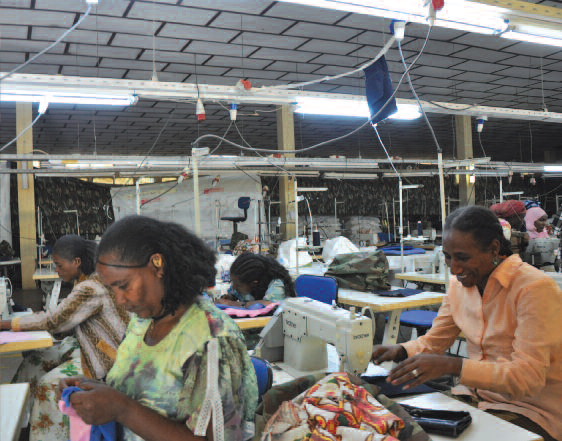Supporting nutrition and protecting livelihoods
 Zenebe Desta
Zenebe Desta
Zenebe is working as the Communication Advisor for at Save the Children Ethiopia. He has experience as reporting, editing and communications experience.
Background
The USAID/Food by Prescription (FBP) programme is implemented in seven regions in Ethiopia1. The programme’s goal is to improve nutrition and clinical and outcomes among HIV+ individuals, pregnant and postpartum women and Orphan and Vulnerable Children (OVC). Its objective is to integrate Nutrition Assessment and Counseling Services (NACS) into health facilities’ HIV care and create linkages to Economic Strengthening (ES) initiatives.
 All FBP programme beneficiaries are provided with NACS and treatment for moderate or severe acute malnutrition. A key component of the programme, is the ES initiative, which aims to prevent a relapse of acute malnutrition among people of working age by improving their income potential and livelihoods. ES activities encompass Income Generating Activities (IGA), which includes Urban Gardening, Self Help Groups and Community Small Saving Groups.
All FBP programme beneficiaries are provided with NACS and treatment for moderate or severe acute malnutrition. A key component of the programme, is the ES initiative, which aims to prevent a relapse of acute malnutrition among people of working age by improving their income potential and livelihoods. ES activities encompass Income Generating Activities (IGA), which includes Urban Gardening, Self Help Groups and Community Small Saving Groups.
IGAs were implemented for more than three years from mid-2009. After three years, the programme recognised that beneficiaries ended up using most of the money they earned to pay back debt. They often could not reinvest in their businesses, which led to frequent failure and prevented lasting changes in household economies.
Back-to-Work project
To develop alternative ES opportunities, a one-year Backto- Work (BTW) pilot project was launched in November 2011 to foster public and private businesses partnerships to create job opportunities and access to employment. The pilot started through a partnership with a local NGO, ‘Mums for Mums’. Promising results were achieved after just a few months. For example, Almeda Textile in Adwa provided skills training to 27 beneficiaries and they started producing various goods from the products wasted during the manufacturing process by the factory. Similarly, 50 beneficiaries started supplying food items to the canteen that serves hundreds of employees in the Saba Limestone factory in Adwa. The Poly Institute in Mekele directly employed 11 beneficiaries and gave scholarships for 30 more in its higher education courses.
The pilot project was extended to two of USAID/FBP partners, Akaki Garment in Addis Ababa and Metehara Sugar Factory in Oromia Region. Together, the factories successfully employed and trained 45 BTW beneficiaries. Due to the positive impact of the pilot project, support for the scale up of BTW into five other regions was received at the beginning of 2013 to go through September 2014. A national experience-sharing workshop was organized in February 2013 to ensure that learning from the pilot could help to design the scale-up of activities.
Since the scale-up of the BTW project, approximately 800 beneficiaries (across various regions) have been linked to employment in private enterprises. Roughly 700 others have participated in basic skill trainings and are in the process of being linked with employers.
Phasing out
The external support to BTW ends in September 2014 and thus the focus is now on sustaining the project in the long term. The ES unit of regional government’s HIV/AIDS Prevention and Control Offices (HAPCO) has been a leading partner throughout the implementation of the project and will continue to lead the overall activities after the external project funding closes. USAID/FBP is working closely with HAPCO to ensure they have the capacity and tools needed to continue to lead and oversee the implementation of these activities. This includes production of a BTW manual, and referral documents listing ES providers by each town to facilitate joint planning and activities between health facilities and HAPCO. Committees, comprised of relevant government officials from offices supporting HAPCO, have been established in major operational towns to identify opportunities and advocate for support from public and private enterprises.
The project will continue to link clients to employment opportunities through implementing partners until external funding ceases. In the meantime, consultative meetings will be held with all stakeholders to discuss and identify how best services can be provided in the future. Given the strong ownership of the project by national and regional HAPCOs as well as local NGO implementing partners, it is strongly felt that all stakeholders are committed to ensuring effective service delivery after September 2014.
1Addis Ababa and Dire Dawa city administrations and Oromia, Harari, Amhara, Tigray and South Nations, Nationalities and Peoples’ regional states.

